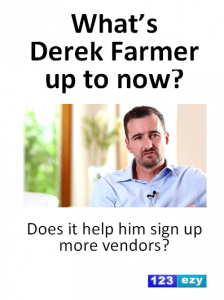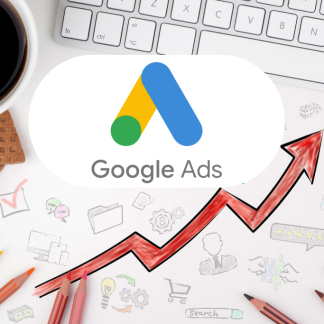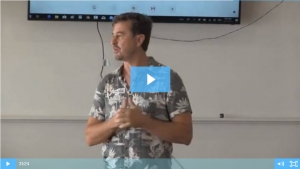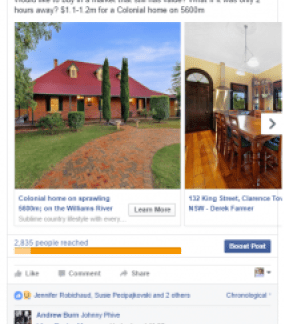Description
Facebook is the world’s largest social network. On a personal level, millions of people use this ‘cloud-based’ program to stay in touch; sharing photos and stories.
However, companies use Facebook to:
- connect with their customers
- attract new prospects
- build a community of advocates who love their brand and who recommend their brand to their friends and family.
When a company directs its marketing to consumers, it’s commonly known as Business-to-Consumer Marketing (B2C Marketing).
We cover how B2C Facebook marketing works in our Facebook for Business Course — and an introduction to Facebook for Business is available for free. Just read on below.
Creating a Facebook Page & Content
The first step in getting involved with Facebook is to create a personal account for yourself. With that account you can:
- create a Facebook Page
- start and participate in online social conversations
- promote your business to new prospects using Facebook Ads
- keep your name in front of existing clients with custom audiences.
Filling your Facebook Page Timeline with Relevant Content
A Facebook page is similar to a WordPress website; you need to fill it with relevant content regularly so that people see your business when they are ready to buy. It also means that your Facebook page gets discovered when someone uses a Facebook AND Google search.
We’ll teach you about:
Using Keywords in your posts, the different types of posts and how they can help encourage people to actually engage with you, how to respond to page visitors comments and posts, how to use your posts to drive traffic to your call to action and how to automate your marketing after the call to action button has been clicked.
We also include checklists to help you make sure that you remain on track with a solid digital strategy and regular improvements!
Facebook Targeted Advertising
One of the reasons Facebook has become such a valuable company is because every person using Facebook is profiled. This means that companies know if you are a man or a woman, where you live, how old you are, marital status, things you like and don’t like, what your hobbies are, where you work etc – it’s a marketers dream!
In our Facebook Advertising Course we’ll go into detail about how to:
- Set up a campaign
- Choose a target audience demographic and create an Adset
- Build your ads
- Choose your words and encourage a call to action.
Learn more about our Facebook Advertising Course contents.
Other Ways Companies Use Facebook for Business
Businesses also use Facebook to utilise ‘the power of the crowd’ in what is commonly referred to as Crowd Sourcing. This can be used to set up Facebook ‘Groups’ which can then:
- build a community of advocates
- provide crowd-based (cheap) support, and even
- hire people.
How to Pay for Facebook Ads
Pay Per Click (PPC)
Just like Google Adwords advertising and LinkedIn ads, Facebook has an advertising algorithm that requires companies to compete for the advertising space. This means that the price you pay for advertising can change constantly and it may depend on the time of year, time of day, target marketing, social events etc.
One of the biggest factors in the price is how many other businesses are you competing with at the same time. This can significantly increase your social media advertising costs. A Pay Per Click campaign means you choose how much you are willing to pay to have someone click a link and visit your lead capture page.
Per 1,000 Views
Professionals like real estate agents want to get their logo (ie their picture portrait) and name in front of as many local residents as often as possible so many real estate agents choose a PPV campaign. People who use this payment method may get their leads elsewhere and consider their ad spend as part of their brand building marketing.
Real Life Examples From Real Estate Agents
 Facebook has appeared on the radar for millions of business worldwide. EzyLearn works with real estate agents who use Facebook to promote themselves, as well as the properties they have for sale.
Facebook has appeared on the radar for millions of business worldwide. EzyLearn works with real estate agents who use Facebook to promote themselves, as well as the properties they have for sale.
Marketing for real estate agents has changed significantly because of the increasing power of the property listing portals, realestate.com.au and domain.com.au, so agents need to find ways of getting themselves known to prospective sellers online.
Facebook provides a great personal touch and way of updating potential clients with relevant information that they can opt in and out of.
Our free Facebook Course contains myriad tips and tricks, taken from real-life scenarios, and based directly on our extensive work promoting real estate agents — in the case of Derek Farmer from Cammeray, taking him from having no business Facebook profile, to Page One on Google.
Facebook Digital Marketing Strategy Checklist Included
Getting set up on Facebook is pretty quick and easy but establishing a strategy involves numerous small tasks that we’ve included in our Facebook Strategy Checklist.
Learn how to use all the tools to master social media using Facebook and have the checklist to manage your progress or even allocate different tasks to different members of your team.
Facebook is a powerful marketing and advertising tool for all businesses.
Whether you own a retail shop, cafe, work in professional services (bookkeeping, accounting, real estate, consulting) or trades services, you’ll be able to use the training and checklist to implement your own social media digital strategy. Even if you get someone else to do it for you, you’ll know what you’re talking about in managing their work.
Facebook Page and Advertising Insights
Having a Facebook Page is just the beginning and once you start gaining some momentum on Facebook you’ll benefit greatly by looking at your Insights and Analytics to improve the quality of your content as well as tweak your page contents to increase conversions. That just means giving people more of what they are genuinely looking for so you get more customers!
Our Facebook Course includes information about the different metrics used as well as how to improve a customer’s path on the sales journey.
Using the Facebook Pixel to Keep Prospects Aware
One of the biggest problems businesses face is how to make people remember them when they need them. With only 3% of website visitors ready to buy when they visit your site businesses can use the Facebook Pixel to “identify” who has been to their website or particular pages of their website and then continuously advertise to those people.
Have you ever clicked on an ad or been to a website and then seen that companies advertisement everywhere you go? It’s because that company has installed a tracking pixel on their website and then told Facebook to show you their ad.








Reviews
There are no reviews yet.